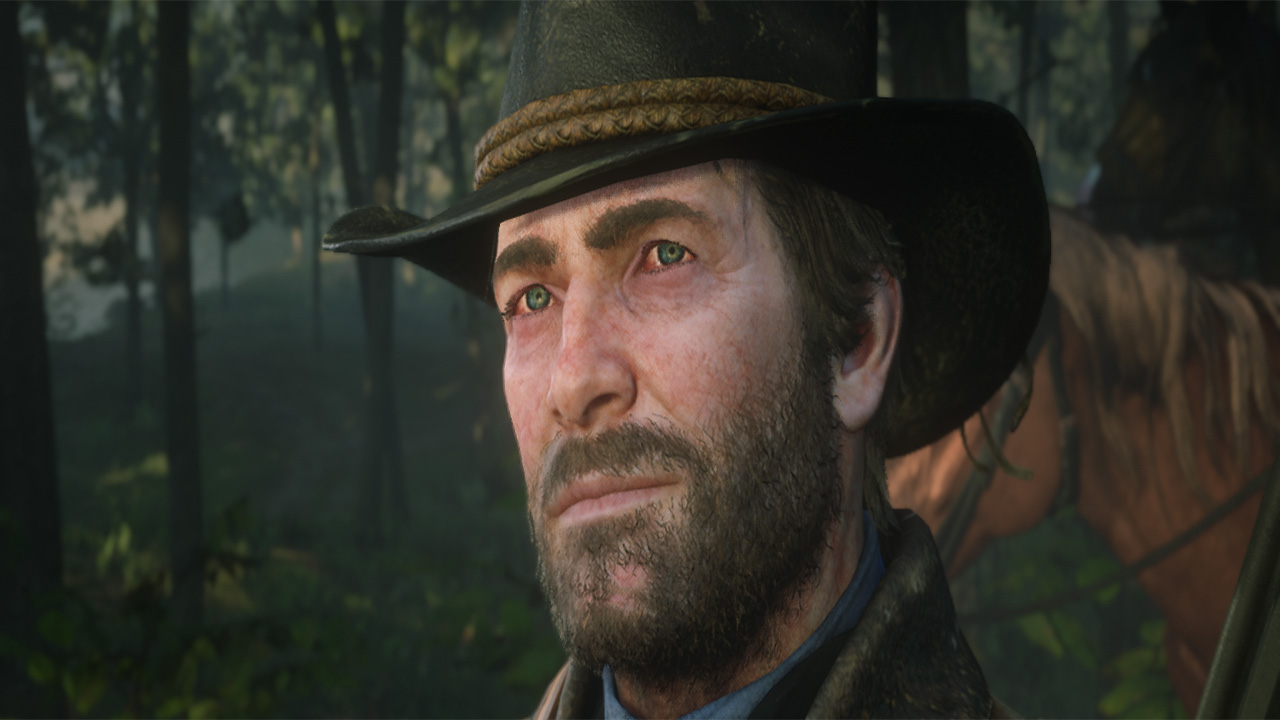
Arthur Morgan’s journey in Red Dead Redemption 2 is an eventful, heartfelt story about doing the right thing. If you didn’t well up at the ending – even though we all knew it was coming – then you’re a monster and, I'm sorry, but we can’t help you.
Like any Rockstar title though, there’s more to it than meets the eye. To paraphrase Shrek’s onion analogy about ogres, there’s multiple layers underneath Red Dead 2’s surface that are ripe for interpretation. None is more fitting for Arthur than viewing his journey through the lens of the five stages of grief. By taking a look at each stage, we’re able to see how they form the backbone of the Shakespearean tragedy that is at the heart of his redemptive tale.
This should go without saying, but beware of SPOILERS from the moment after this video guide to the 17 things you should see in Red Dead Redemption 2 before you eject the disc forever:
Colter (Denial)
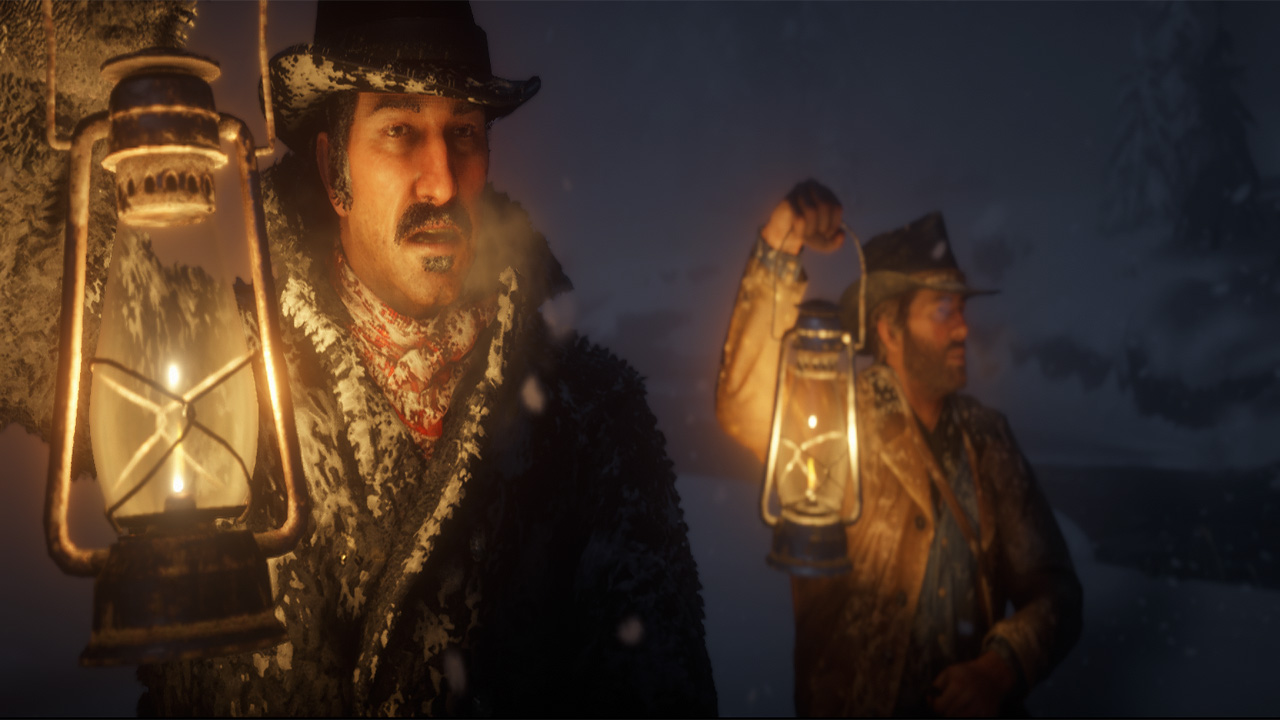
Reeling from a botched ferry heist in Blackwater before the game’s opening, you could forgive Arthur for already beginning to question gang leader Dutch van der Linde’s judgement and leadership. After all, being holed up in sub-zero conditions in a mountain town, with no food, and two gang members killed in the ensuing chaos, things are looking ropey for the band of outlaws.
And yet Arthur, whose devotion to Dutch has been unwavering for almost 21 years by this point, continues to fall for his father figure’s web of lies. His faith, albeit expectedly steadfast, is misplaced, particularly when you consider the lack of concrete answers he receives over what went wrong in Blackwater, and what the gang’s next move is.
Arthur’s denial concerning the present situation, and the rapidly evolving world, is palpable. His blind loyalty to Dutch pulls the veil over his eyes, and prevents him from noticing the obvious warning signs even at this early stage of proceedings.
Horseshoe Overlook and Clemens Point (Anger)
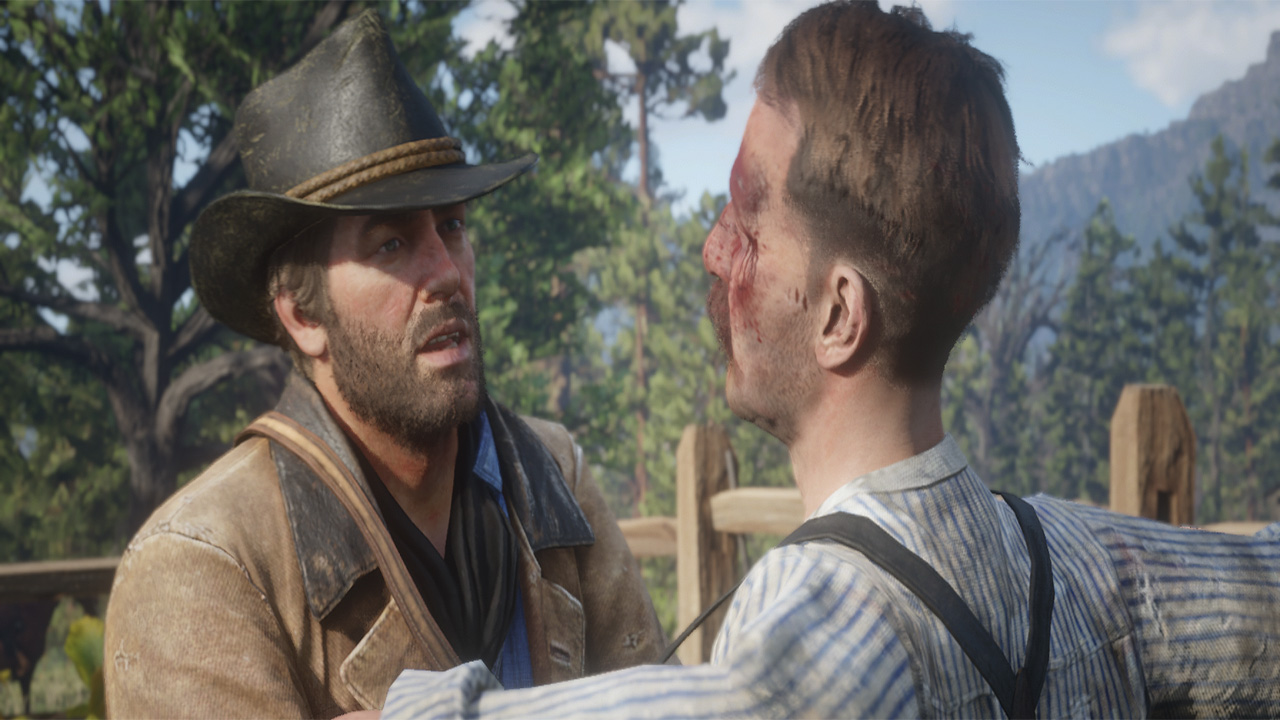
Armed to the teeth after the gang heads South for warmer climes, it’s ironic that Arthur’s greatest weapon – his anger – isn’t a weapon he can draw from his holster. It comes naturally to the man unaffectionately dubbed ‘cowpoke’ by the antagonistic Micah Bell, as Arthur threatens Herman Strauss’ debtors, robbing trains and townsfolk, causing ruckuses in towns like Valentine and Strawberry, and scolding his fellow gang members for not pulling their weight.
Sign up to the GamesRadar+ Newsletter
Weekly digests, tales from the communities you love, and more
His denial, coupled with his fury, continue to serve as distractions from the glaring problems that he and the gang face. Arthur’s grief over Sean MacGuire’s death and the kidnapping of Jack Marston – at the hands of Rhodes’ feuding families the Grays and Braithwaites respectively – is visible, but pales in comparison to the overriding toxic concoction he displays as he pursues the idealistic dreams cemented in his mind by Dutch.
Clemens Point and Saint Denis (Bargaining)
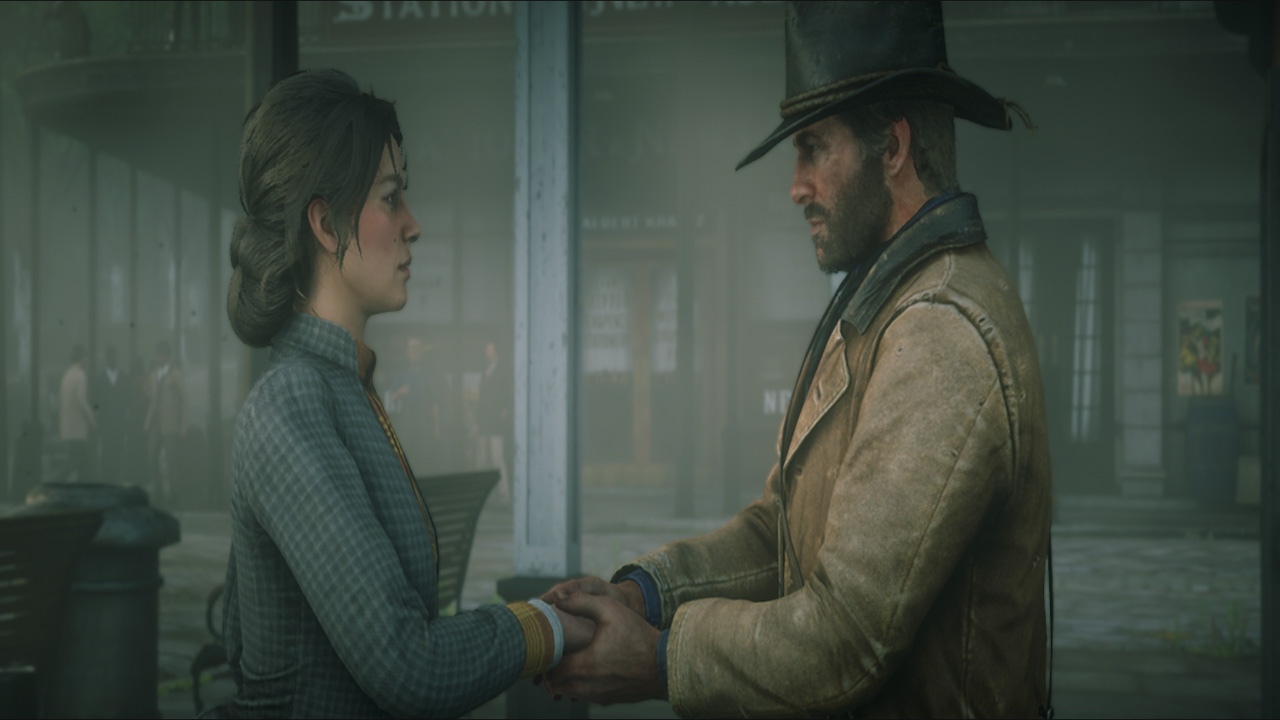
Arthur’s anger may have its uses in some scenarios, but not at the table of bargaining – a fact he becomes all too aware of as the gang are forced to compromise with different factions to get what they want. Arthur, in particular, begins to feel himself pulled in all directions as he is forced to make deals with the Grays and Braithwaites, becomes entangled in Saint Denis crime boss Angelo Bronte’s dirty work in a bid to rescue Jack, and deal with the reemergence of his old flame Mary Linton.
It is the roles that Bronte and Linton play that truly begin testing Arthur’s resolve to continue treading his outlaw path. Bronte’s violent death at Dutch’s hands repulses him even if Arthur fails to admit it, and forces him to consider whether it’s worth following a man with such brutal methods. It’s a situation compounded by Mary’s arrival, and compels Arthur to think about trading his current life for a simpler one with his ex-girlfriend.
Guarma and Lakay (Depression)
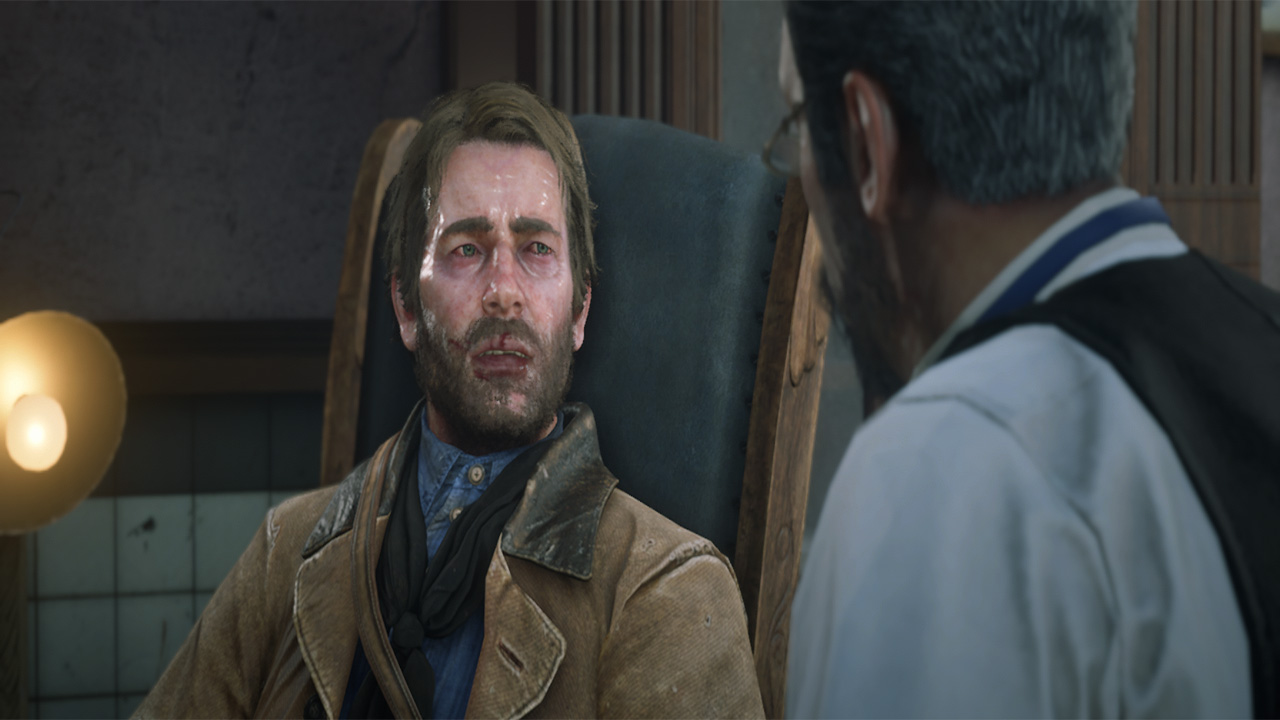
No amount of bargaining can save Arthur and company from yet another failed robbery – this time in Saint Denis – or the devastating events that maroon half of the gang off the coast of Cuba. With no money, weapons, or apparent means of rescue, doubt and despair plague Arthur. It’s difficult not to empathise with him as he begins to really question Dutch and his own place, in his own words, in a world that doesn’t want outlaws anymore.
A glimpse into Arthur’s inner turmoil can be seen after he eventually works his way back on to American soil. Riding back to camp, neo soul track ‘Unshaken’ – recorded specifically for Red Dead 2 by R&B artist D’Angelo – kicks in, and offers a view into the Jekyll and Hyde duel taking place within Arthur at this critical juncture.
If recent events are the smoking gun, a shock to Arthur’s system – quite literally – acts as a proverbial bullet that thrusts him into a bout of depression. A sudden tuberculosis diagnosis, after he collapses following a violent coughing fit, leaves Arthur questioning every aspect of his life. His impending death, disillusionment with life, and his own ambiguous choices lead Arthur to a pivotal crossroads – continue to follow Dutch until the gang’s ruin, or put things right.
Beaver Hollow (Acceptance)
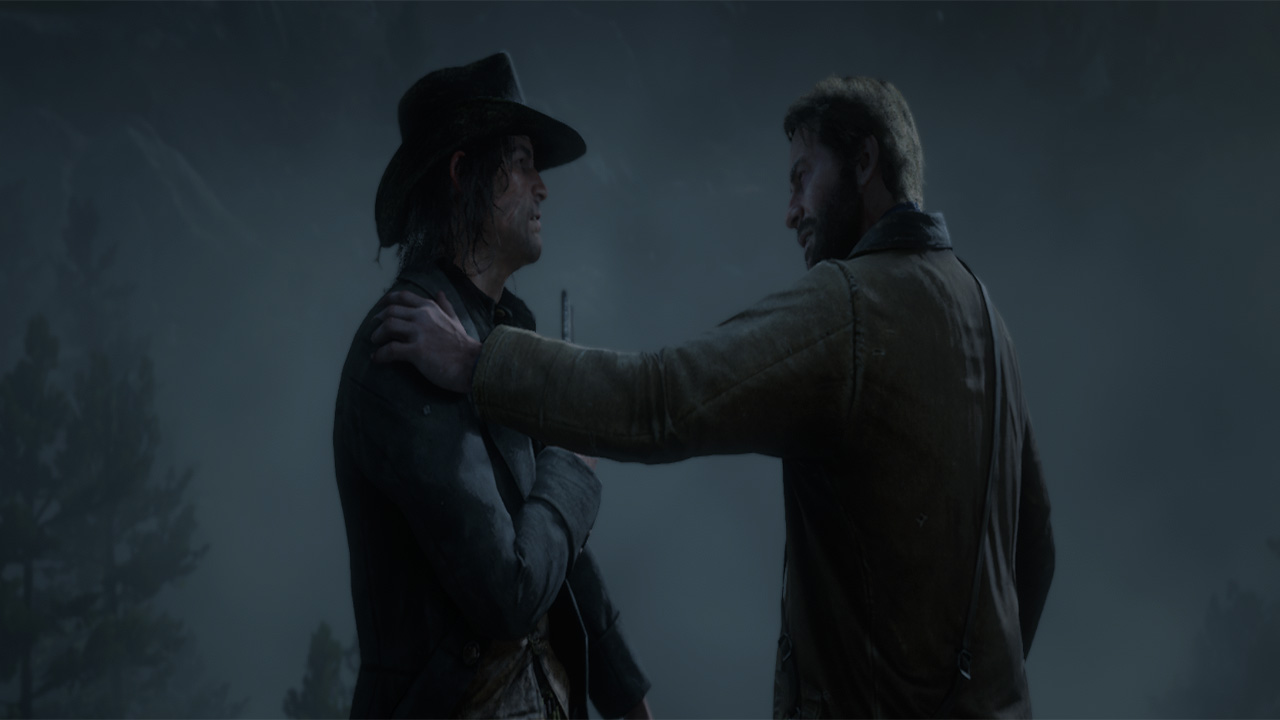
Using his past indiscretions to do some good with what little time he has left, Arthur’s wayward behaviour is replaced with a character reformation steeped in nobility.
His acknowledgement of the man he has been, and the good he can do as his death draws near, shows how Arthur has grown throughout Red Dead 2. This isn’t a man who wants to hide away from his misdemeanours – far from it, in fact. Arthur’s decisions to give away his blood money, to kick out debt collector Strauss, to help those less fortunate than himself, and give John, Abigail, and Jack a fighting chance in life are all evidence of his transformation.
The acceptance of his fate is mirrored in Daniel Lanois’ solemn, emotional song ‘That’s the Way it is’, which plays as Arthur heads for camp to confront those who betrayed his faith and who failed to notice the real traitor in their ranks. One final ride, atop his trusty steed and with the encouraging memories of those he has helped along the way, forms a fitting send off for Arthur ahead of a dramatic finale that fails to leave a dry eye in the house.
The five stages of grief
It’s unsurprising that grief plays such a critical role in Arthur’s story. The emotional, physical, and psychological pain he endures throughout Red Dead 2 is proof of that.
And yet it makes him the hero that the story needs. It gives Arthur a humanity that’s lacking in some of his fellow gang members, and helps us to connect with him on a personal level. It makes us root for him, even when we know how his journey will end. It makes us realise that Arthur isn’t just some callous killer, but a man whose been dealt a bad hand in life.
Despite his flaws, we stick with Arthur, watch him accept who he is, and still do the right thing. Grief doesn’t end up defining Arthur, but makes him a better man. If that’s not indicative of a man – albeit a fictional one – who uses his own grief to do good in the world, we’re not sure what is.
Want more Red Dead goodness? Why not check out our in-depth analysis of the Red Dead Redemption 2 ending?
Tom started out as a freelance journalist before taking up the role of Entertainment Writer at TechRadar. Both as a freelancer and now part of the TR, you'll find him covering all of the latest movies, TV shows, and streaming service news that you need to know about. An NCTJ-accredited journalist, Tom also writes reviews, analytical articles, opinion pieces, and interview-led features on the biggest franchises, actors, directors, and other industry leaders.


